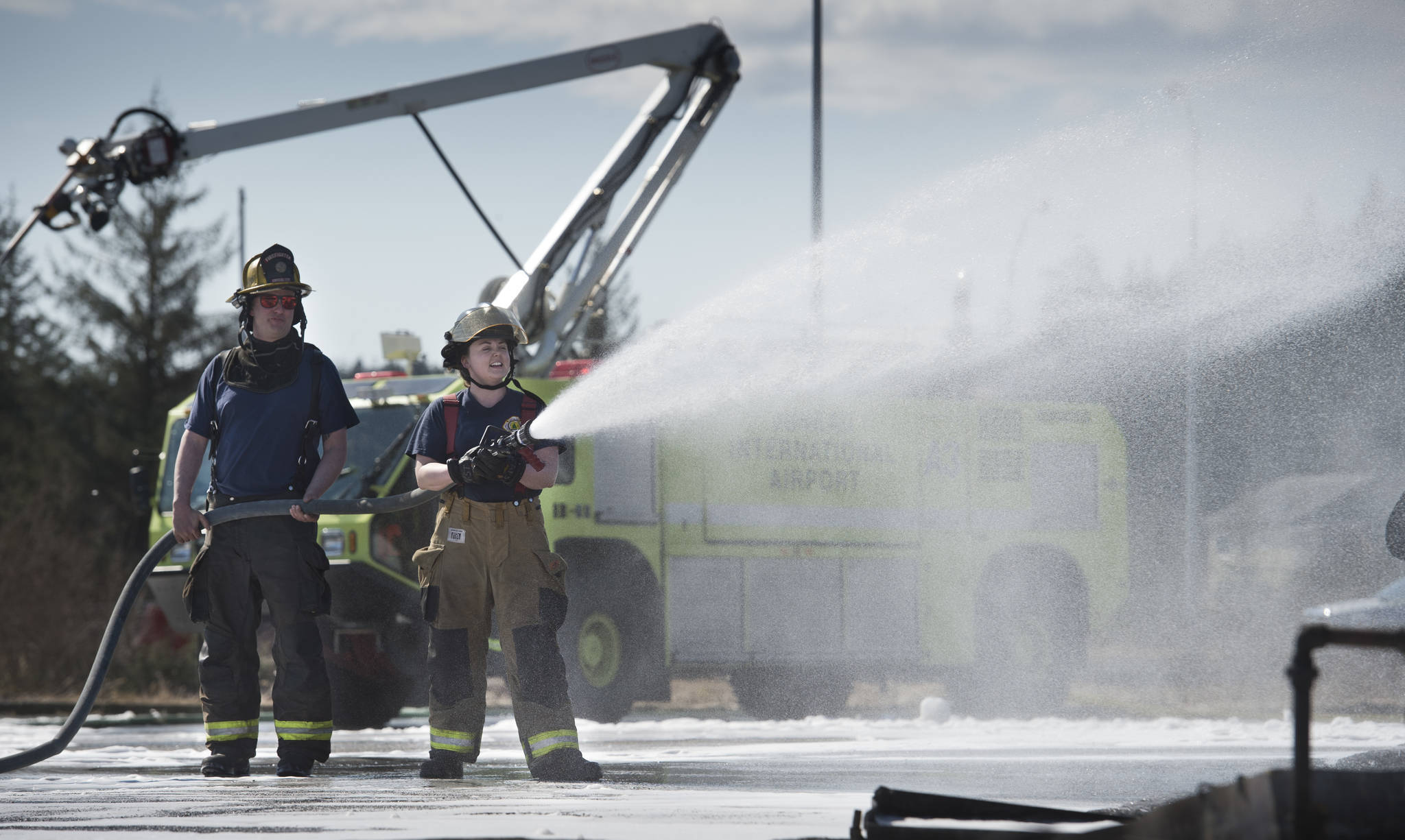The state of Alaska filed a lawsuit against chemical company giant DuPont and other manufacturers of so-called “forever chemicals,” which have been shown to spread contaminants into the air and water.
According to a news release from the Department of Law, the state is seeking damages from these companies for continuing to make and sell foams containing per- and polyfluoroalkyl substances, otherwise known as PFAS, despite knowing about their adverse impacts.
The chemicals are commonly used in firefighting foams at airports around the country, including Alaska. But they’re also water soluble, which means under certain circumstances large plumes of groundwater contamination can form where the chemicals have been used.
Exposure to high levels of PFAS chemicals can cause negative human health effects, DOL said, including developmental effects to fetuses during pregnancy, effects to the immune system, changes to cholesterol levels and cancer.
[Gustavus residents test blood for PFAS]
PFAS contamination was found to have polluted the city of Gustavus’ water supply in 2019, and residents there have been trying to get chemicals cleaned up for years.
Kelly McLaughlin, who lives near Gustavus’ airport and is co-chair of the Gustavus PFAS Action Coalition, said in a phone interview Wednesday the state is still providing fresh water to some residents.
“It’s great news and it’s really exciting. It gives me hope that we might see some cleanup,” McLaughlin said. “I don’t think it will be a quick process, but it will give the state some recourse.”
McLaughlin refers to PFAS chemicals as “forever chemicals,” because they don’t break down and travel up the food chain spreading contaminants. The state has made some effort to clean up PFAS chemicals in Gustavus, she said, but not nearly as much as she would like considering the contamination is ongoing.
Hopefully, the state will use any money from the lawsuit for PFAS chemicals in Gustavus and other airports around the state, McLaughlin said, but noted the chemicals also appear in other products such as waterproofing spray and Teflon cookware.
PFAS chemical contamination was found at the Hagevig Fire Training Center in the Mendenhall Valley, but the City and Borough of Juneau said the chemicals don’t pose a threat to the city’s drinking water which comes from reservoirs located elsewhere.
The state alleges, among other things, that companies violated the law by designing defective products, failing to warn the State of Alaska and the general public of the potentially harmful impact of PFAS and engaging in deceptive trade practices.
[State sues drug companies over opioids]
The state’s lawsuit is one of many filed by Gov. Mike Dunleavy’s administration against large corporations for business practices that have caused issues in Alaska. On April 2, the Department of Law announced a lawsuit against opioid manufacturers and last year filed suits against JUUL for causing a youth e-cigarette crisis, Honda for concealing safety defects and against a number of drug companies for price-fixing of generic drugs among other lawsuits.
Earlier in April, Dunleavy announced he was introducing a bill that would protect Alaskans’ digital information, citing Facebook’s mishandling of consumer information.
Also Wednesday, Sen. Jesse Kiehl, D-Juneau,introduced a bill establishing limits on the amount of the chemicals allowed in drinking water and prevents future spraying of the chemicals.
“While industry and the federal government look at alternatives, we can take action now to protect our water from these harmful chemicals,” Kiehl said in a news release.
Rep. Sara Hannan, D-Juneau, will introduce a companion bill in the House of Representatives, the release said.
“Too many Alaskans are at risk of long-term health impacts caused by these chemicals, and those responsible need to be held accountable for the contamination and health effects – in the past and into the future,” Hannan siad.
Even as she acknowledged there was a lot of work ahead, McLaughlin said she glad to see the news and hoped it would prompt Alaskans to contact their lawmakers.
“I’m just happy to see PFAS in the headlines again,” she said. “I hope people are paying attention.”
• Contact reporter Peter Segall at psegall@juneauempire.com. Follow him on Twitter at @SegallJnuEmpire.

